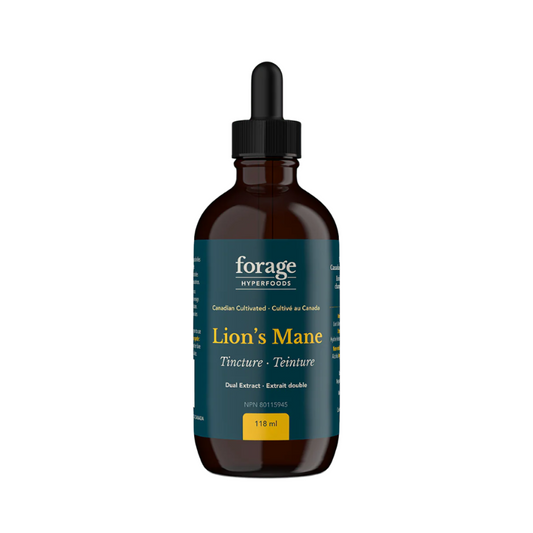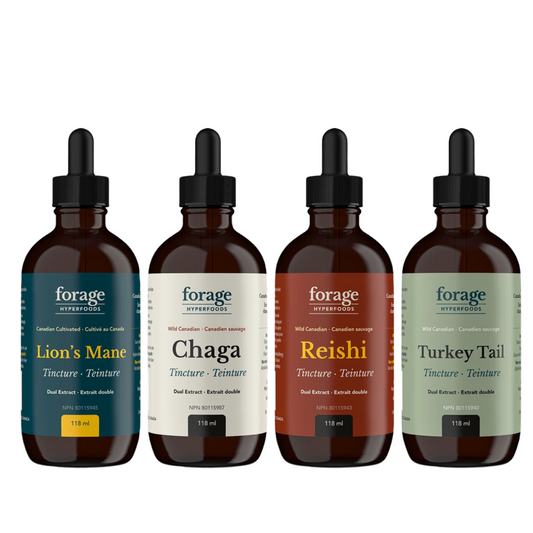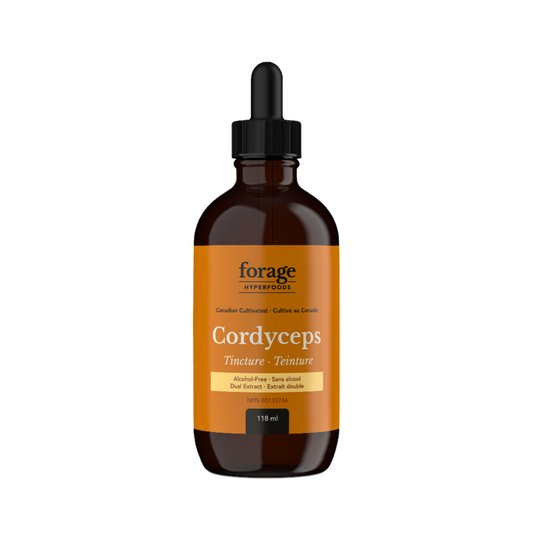
Chaga for Psoriasis: Can It Help?
Share
If you’re one of the eight million Americans who struggle with psoriasis, you know how debilitating this condition can be. You’ve probably tried several things to heal it, from western medicine to alternative therapies. You’ve also likely grown accustomed to hearing about the latest and greatest natural “cure” for psoriasis. While we’re certainly not going to promise any miracle cures, we do have some encouraging information and research to share about consuming Chaga for psoriasis. Before we dig in, let’s first go over some basics.
What is psoriasis?
Psoriasis is a chronic, inflammatory skin disease that is caused by an overactive immune system that speeds up skin cell growth. With this disorder, skin cells multiply up to ten times faster than normal. This causes the skin to build up into non-contagious, scaly red patches covered. They can grow anywhere, but most commonly appear on the scalp, elbows, knees, and lower back. The patches can repeatedly heal and then come back throughout a person’s life.
What is Chaga?
Although it’s typically referred to as a mushroom, Chaga (Inonotus obliquus) is actually a sclerotia—a hardened mass of fungal mycelium. Chaga primarily grows on birch trees in cold climates, like those in Canada, Siberia, Scandinavia, and some parts of the United States.
Chaga doesn’t pop up from the forest floor like most mushrooms. Rather, Chaga appears on the tops of birch trees as a black, charcoal-like mass (called a conk) with a woody, orange interior. Despite its unsightly exterior, the wide-ranging health benefits of Chaga more than make up for its lack of aesthetic beauty. Chaga is packed with antioxidants, vitamins, and minerals, making it a functional fungi powerhouse. It’s been shown to support a strong immune system, provide anti-inflammatory benefits, support heart health, promote good digestion, and potentially play a role in cancer prevention, just to name a few. One interesting theory is that Chaga’s many beneficial compounds may be a result of natural adaptations by the fungus to withstand the cold, harsh climate in which it grows.
Can Chaga help heal psoriasis?
Since psoriasis is an immune-mediated disease that causes systemic inflammation, using Chaga to reduce inflammation and modulate the immune system sounds like it could be a match made in heaven. But what does the research say? While there is a lack of human studies, there are some really interesting animal studies worth noting.
In one study, mice with intestinal inflammation were given Chaga extract. The study showed that it suppressed TNF-alpha (a protein used by the immune system for cell signaling), which is a big player in psoriasis flare-ups.
In another Russian study, continued regular intake of Chaga led to a full disappearance of psoriatic lesions in 38 out of 50 people without any other treatment. The study found that using Chaga for psoriasis was particularly successful in cases where psoriasis occurred in combination with chronic inflammatory diseases of the gastrointestinal tract, liver, and biliary system. Even better, there were no side effects observed during the study. The study reported that it typically took 9-12 weeks for improvement to become apparent.
A natural treatment
For a disorder that is notoriously hard to treat, these studies are very impressive. While large-scale human studies need to be conducted, the current research is very encouraging. After all, psoriasis treatments can sometimes be worse than the disease itself in terms of side effects. For example, topical corticosteroids are commonly used to treat this disorder, however, they can have long-term negative effects including more severe psoriasis attacks after stopping the steroids, vision loss, diabetes, weight gain, and memory loss, just to name a few. Chaga, on the other hand, is completely natural and doesn’t have any side effects. In fact, it supports human health in a number of incredible ways.
Find a trusted source for your Chaga
Purchasing Chaga mushroom from a trusted supplier is the best way to ensure its effectiveness and safety. Not all Chaga products are created equal so be sure you’re getting yours from a company whose Chaga is organically grown, sustainably harvested, carefully extracted, and tested for quality and contaminants, such as heavy metals, pesticides, microbial contamination, and gluten. If a Chaga supplement lists any ingredients like “mycelium on grain” or other funky fillers, it's best to avoid it. To reap the full potential of this fungal powerhouse, seek a Chaga extract that uses wild-harvested Chaga.
Will Chaga help psoriasis?
While nobody can say if Chaga is a cure for psoriasis at this point in time, the available research in animals looks promising. With its immune-modulating and anti-inflammatory properties and high antioxidant content, Chaga is definitely worth a try for those struggling with psoriasis. As with any treatment or supplement, it’s important to get your doctor’s approval before starting.
All referenced sources are linked in the blog.



